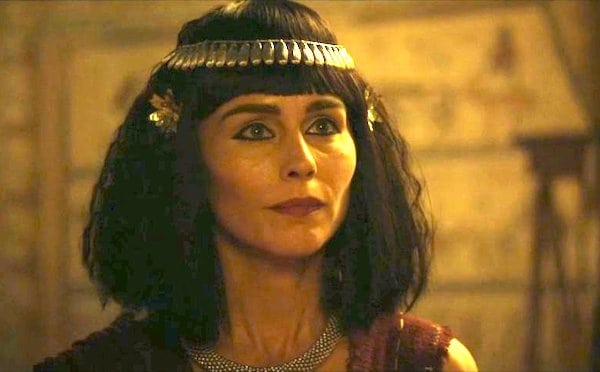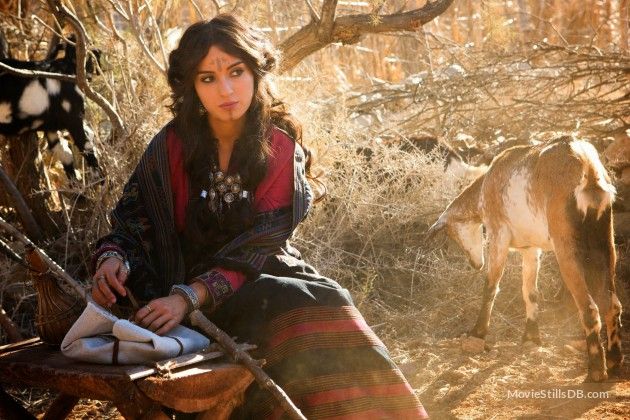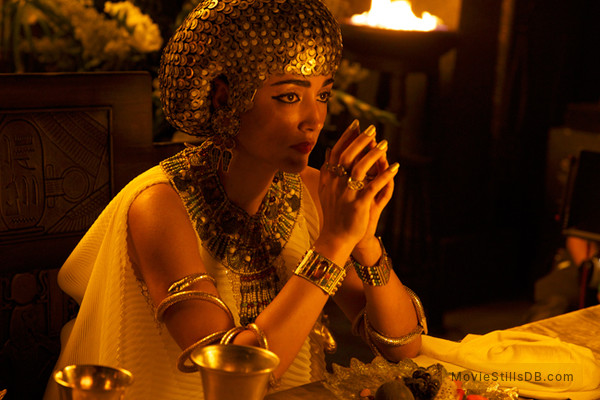So this semester, I have been taking a survey of the Old Testament. ITT I will be posting a summary of what I gather from each book. Each week I’ll post my summary for a different book and then open the floor up for discussion. This week, I’ll mention the reoccurring theme that I keep seeing throughout the OT and then move on to Genesis.
IMO, the theme of the OT is this:
From the beginning of Genesis and throughout the entire Old Testament,
There is a common theme. This theme is that humans continue to sin, rebel, and choose to do their own thing, and even so, God still has patience with us and continues to bless us. Occasionally things will get so bad that God will have to punish us, but time and time again, we repent, are sorrowful for our sin and are back in God’s good graces, only to rebel and sin again. This cycle goes on and on throughout the entire OT. God’s chosen people, the Jews, descend from Abraham and his covenant with God. They eventually arrive in the promised land after many centuries of enduring slavery, wandering through deserts, and fighting off other tribes of people. Eventually, Canaan, the promised land, is renamed Israel. Coincidentally, that is what God renamed Jacob, which means “wrestle with God”. This is fitting because we as humans CONTINUE to wrestle with God to this day and have since the beginning of man. Now on to my summary of Genesis...
1. Adam and Eve choose to defy God by eating from the tree of knowledge because satan convinced them to through lies. God responds by allowing them to live but having to endure the pains of the world from there on out.
2. The 6th generation descendant of Cain, Lamech is the first person to take more than one wife. He was vengeful and a tyrant to his city he built. The rest of the world was full of sin and treachery. Eventually God responds by sending the great flood to wipe out the world but saves Noah and his family.
3. Once again, we see the earth’s population full of sin. They think they can get close to God by building a tower (tower of Babel) God responds by changing everyone’s language and nobody can understand one another. Everyone begins to spread out and move away from each other.
4. Eventually, God Decides to bless Abram who later becomes Abraham. He builds a covenant with Abraham promising him land, and a long lineage of people (God’s chosen people). Abraham and his wife Sarah are very old and childless. Abraham has a son with a concubine, Hagar. The son’s name is Ishmael. Ishmael is considered the father of Islam. God blessed Abraham and Sarah with a son, Issac. IMO, God decides to test Abraham’s faith by ordering him to sacrifice his only son because he wants to make sure that Abraham is truly the patriarch of the lineage God wants to use moving forward. I.e. he doesn’t want to get down the line and them not be the right kind of people. Abraham passes his test and God sends an angel to stop him at the last second. And so the lineage begins. Sarah eventually dies, Abraham remarries
5. Issac and his wife Rebecca have twin sons, Jacob and Essau. Rebecca favored Jacob over Essau and helped devise the plan where Jacob deceived Issac by portraying himself as his older brother In order to get dying Issac’s blessing. Fearing for his life from Essau, he takes off and leaves all his blessed inheritance to Essau. Jacob works for 7 years to marry his master (Laban)’s daughter Rachel. But is deceived himself when he goes to marry her, he sees it’s really the eldest daughter, Leah. He vows to work for another 7 years IOT to really marry Rachel. Eventually, he travels back to Canaan to meet his brother. He is scared his brother who has 400 men with him is going to kill him. He prays for God to not allow this. Sometime on his way to meet Essau, Jacob encounters a man (God) who wrestled with him throughout the whole night. God changes Jacob’s name to Israel. Israel and Essau finally meet and Essau spares him. Jacob ended up having many sons with his 2 wives and 2 concubines. He is the father of the 12 tribes of Israel. He favored his second to last son, Joseph.
6. Joseph’s other brothers resented him for this and sold him into slavery to Egypt. Eventually Joseph became 2nd in charge of Egypt. There was a drought in Canaan and all the brothers moved to Egypt. They were met with open arms from Joseph. Jacob is on his deathbed and decides to bless his 12 sons. When he gets to his 4th son, Judah, he claims that he will be the the one that the King of their people will eventually come from. That king will restore the original covenant between God and Abraham and all the blessings God has promised will come to fruition. After this, Jacob dies. Eventually Joseph dies too, and the family lineage grows and grows and the book of Genesis ends with hope for the covenant and future.
IMO, the theme of the OT is this:
From the beginning of Genesis and throughout the entire Old Testament,
There is a common theme. This theme is that humans continue to sin, rebel, and choose to do their own thing, and even so, God still has patience with us and continues to bless us. Occasionally things will get so bad that God will have to punish us, but time and time again, we repent, are sorrowful for our sin and are back in God’s good graces, only to rebel and sin again. This cycle goes on and on throughout the entire OT. God’s chosen people, the Jews, descend from Abraham and his covenant with God. They eventually arrive in the promised land after many centuries of enduring slavery, wandering through deserts, and fighting off other tribes of people. Eventually, Canaan, the promised land, is renamed Israel. Coincidentally, that is what God renamed Jacob, which means “wrestle with God”. This is fitting because we as humans CONTINUE to wrestle with God to this day and have since the beginning of man. Now on to my summary of Genesis...
1. Adam and Eve choose to defy God by eating from the tree of knowledge because satan convinced them to through lies. God responds by allowing them to live but having to endure the pains of the world from there on out.
2. The 6th generation descendant of Cain, Lamech is the first person to take more than one wife. He was vengeful and a tyrant to his city he built. The rest of the world was full of sin and treachery. Eventually God responds by sending the great flood to wipe out the world but saves Noah and his family.
3. Once again, we see the earth’s population full of sin. They think they can get close to God by building a tower (tower of Babel) God responds by changing everyone’s language and nobody can understand one another. Everyone begins to spread out and move away from each other.
4. Eventually, God Decides to bless Abram who later becomes Abraham. He builds a covenant with Abraham promising him land, and a long lineage of people (God’s chosen people). Abraham and his wife Sarah are very old and childless. Abraham has a son with a concubine, Hagar. The son’s name is Ishmael. Ishmael is considered the father of Islam. God blessed Abraham and Sarah with a son, Issac. IMO, God decides to test Abraham’s faith by ordering him to sacrifice his only son because he wants to make sure that Abraham is truly the patriarch of the lineage God wants to use moving forward. I.e. he doesn’t want to get down the line and them not be the right kind of people. Abraham passes his test and God sends an angel to stop him at the last second. And so the lineage begins. Sarah eventually dies, Abraham remarries
5. Issac and his wife Rebecca have twin sons, Jacob and Essau. Rebecca favored Jacob over Essau and helped devise the plan where Jacob deceived Issac by portraying himself as his older brother In order to get dying Issac’s blessing. Fearing for his life from Essau, he takes off and leaves all his blessed inheritance to Essau. Jacob works for 7 years to marry his master (Laban)’s daughter Rachel. But is deceived himself when he goes to marry her, he sees it’s really the eldest daughter, Leah. He vows to work for another 7 years IOT to really marry Rachel. Eventually, he travels back to Canaan to meet his brother. He is scared his brother who has 400 men with him is going to kill him. He prays for God to not allow this. Sometime on his way to meet Essau, Jacob encounters a man (God) who wrestled with him throughout the whole night. God changes Jacob’s name to Israel. Israel and Essau finally meet and Essau spares him. Jacob ended up having many sons with his 2 wives and 2 concubines. He is the father of the 12 tribes of Israel. He favored his second to last son, Joseph.
6. Joseph’s other brothers resented him for this and sold him into slavery to Egypt. Eventually Joseph became 2nd in charge of Egypt. There was a drought in Canaan and all the brothers moved to Egypt. They were met with open arms from Joseph. Jacob is on his deathbed and decides to bless his 12 sons. When he gets to his 4th son, Judah, he claims that he will be the the one that the King of their people will eventually come from. That king will restore the original covenant between God and Abraham and all the blessings God has promised will come to fruition. After this, Jacob dies. Eventually Joseph dies too, and the family lineage grows and grows and the book of Genesis ends with hope for the covenant and future.





